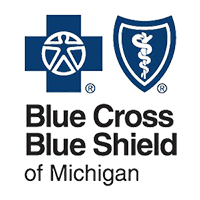Blue Cross Blue Shield of Michigan is an independently licensed company affiliated with the Blue Cross Blue Shield Association. Blue Cross Blue Shield is an umbrella organization that operates health insurance companies throughout the U.S. and serves more than 100 million people.
Blue Cross Blue Shield of Michigan provides health insurance to 5 million Michigan residents, including individuals, families, and companies. They have thousands of health insurance plans to choose from.
Does Blue Cross Blue Shield of Michigan Cover Addiction Treatment?
Most Blue Cross Blue Shield of Michigan plans cover mental health and substance abuse treatment, as required by the 2010 Affordable Care Act. This act requires that most long term insurance plans provide 10 essential health benefits, and both addiction treatment and mental healthcare are on the list.
However, there are exceptions to the law and insurance plans differ. As a result the options for treatment and requirements to get care can vary widely. It’s important to get the full details of your insurance plan before you commit to a rehab program.
When you verify your insurance you can find out what type of treatment is covered and for how long. You’ll also learn what out of pocket costs to expect such as deductibles and copayments so you aren’t caught off guard.






